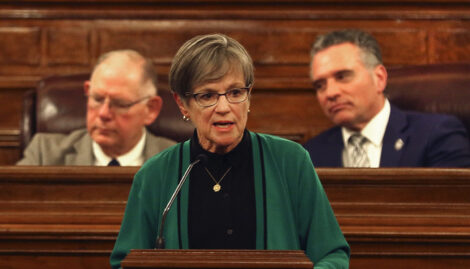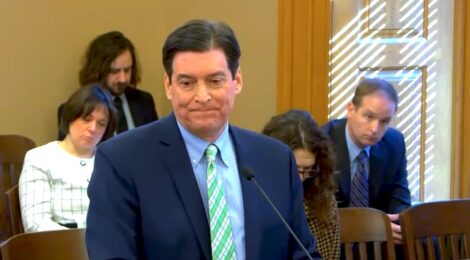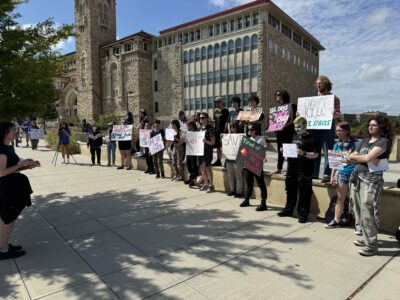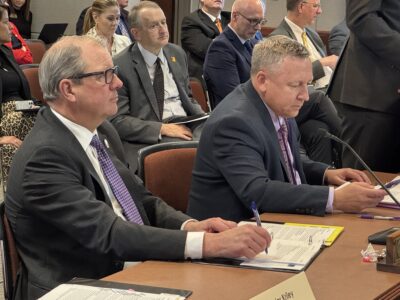Bill stopping cities, counties from using money to create guaranteed income programs becomes law

photo by: Josie Heimsoth/Journal-World
Several people gathered for a "data walk" hosted by hosted by LiveWell Douglas County and the Douglas County Community Foundation on Friday, November 15, 2024.
An idea that would have given low-income single mothers in Douglas County a guaranteed income likely won’t be moving forward anytime soon now that a state bill prohibiting local government involvement in such programs has become law.
Democratic Gov. Laura Kelly on Friday announced that she is letting the Republican-sponsored bill become law without her signature. The bill was proposed in the Kansas Legislature after Douglas County health leaders included the guaranteed income idea in their five-year community health plan.
On Friday, Kelly said that she does not like bills that take authority away from local governments to implement programs for their communities, but in this instance opponents who worried about the cost of such a guaranteed income program may have had a point.
“I am concerned that a guaranteed income program would exacerbate the current problem of disproportionately high local property taxes,” Kelly said via a press release Friday.
The idea of a guaranteed income program — which never reached the point of county commissioners formally considering the program — had its supporters and detractors locally. Some supporters have pointed to pilot projects elsewhere, such as in Austin, Texas where people receiving the guaranteed income payments saw a double-digit increase in housing security within a year.
Opponents, some of whom spoke out against the idea at Douglas County Commission meetings, worried the program would require a large increase in taxes to fund, and would create a disincentive for people to find work if they knew they qualified for a guaranteed income payment.
The bill — House Bill 2101 — says no city or county can adopt an ordinance or resolution that uses tax dollars to support a guaranteed income program, unless the Kansas Legislature first approves the program.
The bill passed both the Kansas House and Senate with margins that likely would have allowed legislators to override any veto by Kelly.





